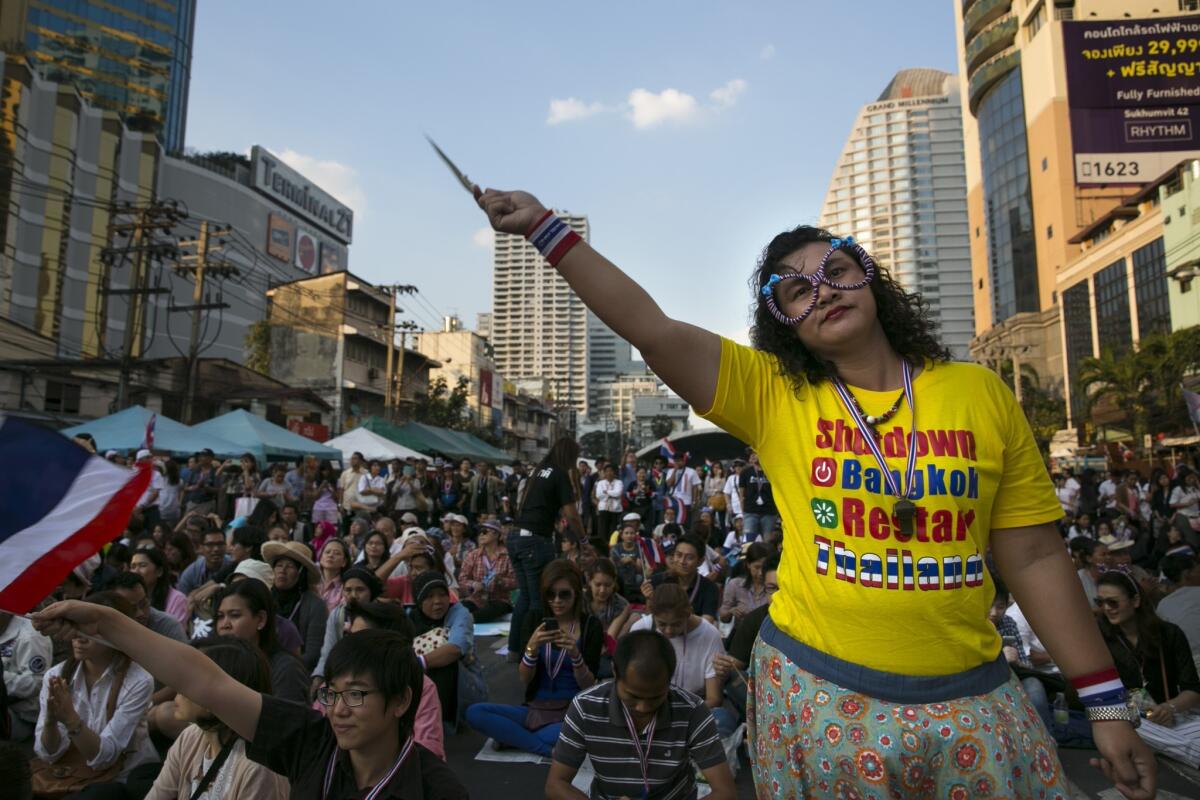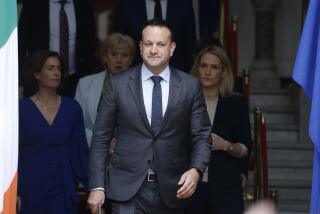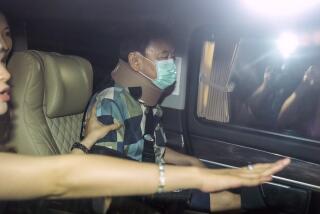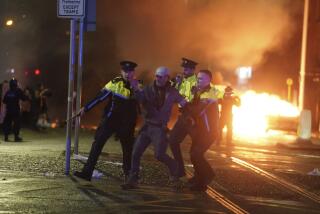Thailand’s premier rejects calls to step down as protests roil Bangkok

BANGKOK, Thailand – As anti-government protesters continued their siege of the capital, Thailand’s embattled prime minister on Tuesday rejected growing calls for her resignation, saying she had a “duty to preserve democracy.”
Prime Minister Yingluck Shinawatra dismissed the protesters’ threats to detain her if she didn’t step down, insisting that she was not clinging to power for her own sake. “I’d like to say right now I am not holding on [to power] but I have to keep political stability,” Yingluck said.
Bangkok endured its second consecutive day of mass street demonstrations aimed at delaying a Feb. 2 election that the ruling government is expected to win. The latest round of protests has so far been peaceful.
The protesters, led by opposition politician Suthep Thaugsuban, threatened to cut power and water to government ministers’ homes in one of their more aggressive moves in Thailand’s months-long political crisis.
“If they are still being obstinate, we will capture them one by one because the people are not interested in fighting for years,” Suthep said.
The protesters see Yingluck, a 46-year-old alumna of Kentucky State University, as a puppet of her older brother, Thaksin Shinawatra, a former telecommunications mogul who won successive elections in the early 2000s before being ousted in a 2006 army coup.
Currently in self-imposed exile in Dubai after he was convicted of corruption, Thaksin retains support among poorer Thais, who welcomed his populist policies, but is reviled by many well-heeled Bangkok residents as a megalomaniac who sought to usurp power from the country’s long-ruling monarch.
The latest protests have been sparked by an attempt by Yingluck’s government to pass an amnesty bill late last year, which opponents saw as a ruse to allow Thaksin return to Thailand without having to face jail for corruption charges.
With an estimated 170,000 protesters occupying several major intersections in sprawling Bangkok, the stakes have been raised ahead of next month’s elections, which the protesters want postponed pending the creation of an appointed government of “good people.”
The State Department has called for Thailand to uphold “democratic principles” and praised the armed forces for so far showing restraint against the demonstrators.
Over the past two months, anti-government groups have occupied government buildings, attacked pro-government “red shirt” activists and occasionally battled with security forces in violence that has killed at least eight people and injured more than 450.
“As anti-government protesters intensify actions, the risk of violence across wide swaths of the country is growing and significant,” the International Crisis Group, a research group, warned this week.
Aim Sinpeng, a Thai analyst at the University of British Columbia, said the protest movement aims to preserve Thailand’s old order -- led by the monarchy and the military -- which Thaksin and his allies have threatened.
“Essentially, they want the power of the traditional elites … to be preserved, and the empowerment of the urban middle class, who pays taxes and is educated and thus should be calling the shots,” Sinpeng said in an interview.
Thida Thavornseth, head of the main faction of the pro-government red shirts, said the protesters’ rhetoric would effectively put Thailand’s democracy on hold.
“What they want is what they call ‘Thai-style democracy,’ ” she said. “This means appointing leaders rather than electing them.”
But at Asoke junction in Bangkok, a key intersection where rail links converge near one of the city’s notorious red-light districts, tens of thousands of demonstrators waved placards, banners and T-shirts emblazoned with anti-Yingluck slogans.
“We want reform before election,” said Teera Tanyapaibul, a well-known television journalist who had joined the protesters. Pressed for specifics on how long a reform period should last, and when elections should be held, Teera shrugged and said, “I don’t know.”
Since Thaksin’s 2006 ouster, governments led by parties linked to him have been removed by a combination of street protest and court action – a scenario that could be playing out again now ahead of the elections. The main opposition group, the Democrat Party, says it will boycott the vote in solidarity with the protesters.
Yingluck’s supporters say the protesters are hoping to goad the redshirts into clashes that could prompt Thailand’s coup-prone army to intervene and retake control of the government. There have been 18 coups or attempted coups since 1932, when Thailand adopted its constitutional monarchy system of government.
Even some in the pro-government camp are appealing for calm.
“If there is a clash,” said Thida, head of the redshirts, “it is very easy to have a coup afterwards.”
Roughneen, a special correspondent, reported from Bangkok. Bengali, a Times staff writer, reported from New Delhi.
More to Read
Start your day right
Sign up for Essential California for news, features and recommendations from the L.A. Times and beyond in your inbox six days a week.
You may occasionally receive promotional content from the Los Angeles Times.







